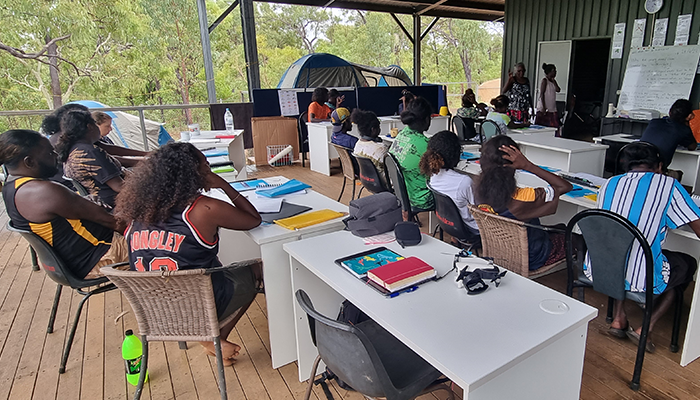- 300,000 Australians live with obsessive-compulsive disorder (OCD), many of whom experience barriers to receiving help and treatment.
- One-third (38%) of those who access the self-guided internet-delivered cognitive behavior therapy (ICBT) experienced clinically significant improvements in symptoms.
- Those living in rural and regional Australia or whose symptoms prevent them from seeing a psychologist, can now access this form of treatment, free of charge.
Researchers at Macquarie University have proven the effectiveness of online treatment for those living with obsessive-compulsive disorder, revealing a viable solution to overcome barriers to treatment including location and cost.
The new research, published in August in the Journal of Anxiety Disorders, analysed the results of a free internet-delivered program in bettering patient outcomes, which found 38% of participants had a clinically significant improvement in symptoms three months following treatment.
Approximately 300,000 Australians are affected by OCD each year. 1 OCD symptoms include repetitive and unwanted thoughts, mental images, or doubts, which are called obsessions. To cope with the distress of these obsessions, many people living with OCD perform rituals or compulsions.
Previous research in this space has found that many Australians would rather self-manage their care if they sought treatment for an anxiety disorder, rather than seek professional help from a psychologist.2
Online services, such as the OCD program tested in this research, are proving increasingly important for those who face obstacles in receiving help for anxiety disorders, explains lead author Dr Bethany Wootton, an Honorary Senior Research Fellow at Macquarie University.
“Cost, location, and a reluctance to seek help are just some of the barriers faced by those living with obsessive-compulsive disorder and other anxiety disorders,” says Dr Wootton.
“Being able to develop and implement online services, such as the one analysed in our research, mitigates these barriers, provided they are effective.”
Self-guided intervention for those living with OCD symptoms, not only overcomes barriers to care, but also provides cost saving benefits, as little clinician time is needed during the process.
People who experience lower prevalence conditions, such as OCD, can also benefit from access to online treatment, as not all clinicians are specifically trained in OCD treatment. Standardised online treatment courses can offer more consistent and effective treatment options for those in rural and regional areas who may not have access to the right specialist.
The researchers completed a randomised controlled trial comparing the self-guided internet-delivered cognitive behavior therapy to a waitlist control group, and then compared results at pre-treatment and post-treatment, and followed people up 3 months later.
The results revealed 27% of patients who used the self-guided ICBT had clinically significant symptom improvements post-treatment, and 38% experienced improvements by the three-month post-treatment follow-up session.
“It’s important that patient groups that have severe barriers to care are not disadvantaged from seeking the help they need,” says Associate Professor Blake Dear, of Macquarie University, who assisted with the research.
“Our findings have implications across a number of anxiety disorders, as well as other mental health disorders, to warrant a move to more accessible treatment options, especially for those living in regional and rural Australia.”
The researchers have now received a grant from the International OCD Foundation to continue their work, including research into predictors of response to treatment.
A clinician-guided version of the internet-delivered cognitive behavior therapy for obsessive-compulsive symptoms is available for free on the MindSpot website: https://mindspot.org.au/
Dear B, Karin E, Titov N and Wooton B M. Self-guided internet-delivered cognitive behavior therapy (ICBT) for obsessive-compulsive symptoms: A randomized controlled trial. Journal of Anxiety Disorders. August 2019. https://doi.org/10.1016/j.janxdis.2019.102111



